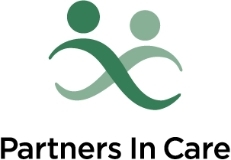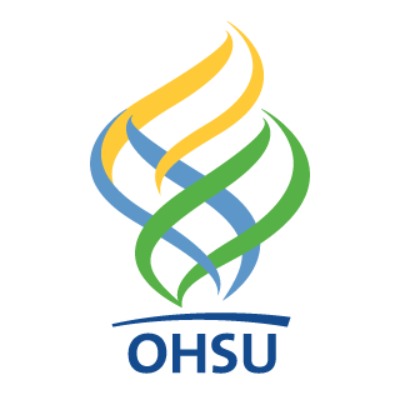About Job
Mental Health & Addiction Association of Oregon (MHAAO)
Peer Support Specialist – Multnomah County Sheriff’s Office
Behavioral Health Connections Job Description
Pay: $25.00 Per Hour
Schedule: 1.0 FTE (40 hours per week)
Days/Hours: Monday to Thursday, 7:00am – 5:00pm
Benefits: This is a benefited position as outlined in the MHAAO Employee Handbook
Title: Peer Support Specialist
Reports to: Old Town In-reach Program Peer Delivered Services Manager
Department: EVOLVEPeer Delivered Services – Multnomah County Sheriff’s Office Behavioral Health Connections
Job Summary
The Peer Support Specialist (PSS) provides peer support as someone who has similar life experiences and acts as a positive role model for living in recovery. The PSS is a member of interdisciplinary teams participating in collaboratively supporting an individual’s self-defined and self-directed care. The PSS supports the individual being served by creating their own person-directed recovery plan and accomplishing goals towards their self-defined recovery journey plan. They provide a listening, nonjudgmental presence and connect individuals being served with a full range of community resources.
Peer Support Specialist must have experience with mental health, substance use disorders, and navigation of treatment and support resources, especially with individuals in the criminal justice system. Peers shall provide Peer Support Services to Multnomah County at-risk community members, including individuals exiting the jail who are experiencing challenges related to mental health and or substance use, and/or those in the community who have come in contact with Multnomah County Sheriff's Office (MCSO) law enforcement officers.
MHAAO EVOLVE – MCSO Behavioral Health Connections Program is a collaboration between MCSO, Cascadia Healthcare and MHAAO. The Program is intended to divert individuals with behavioral health challenges from involvement in the criminal justice system to appropriate stabilization resources, to reduce the number of repeated police contacts and/or instances of incarceration for individuals with behavioral health challenges, and to promote continued engagement with services that will assist individuals with behavioral health challenges to maintain stability in their lives.
MHAAO will provide peer support that focuses on a recovery-oriented support system that strengthens hope, choice, personal responsibility, and self-determination. The PSS/CRMs will provide support as a peer who has similar life experiences and acts as a positive role model of living in recovery. The support services will be holistic, person-directed, trauma-informed and strength-based. Participants will receive individualized assistance to set personal goals and access services to support their goals.
Support will take place in various locations and environments including but not limited to outdoor locations in East Multnomah County, Multnomah County jail facilities, or other locations that are mutually agreed upon by clients and Peers.
Qualifications
Values Alignment: MHAAO strives to honor cultural and spiritual diversity in the communities we serve as well as honoring Voice and Choice through trauma-informed practices with a Social Justice lens. Our values of Voice and Choice mean we believe in the person’s right to make their own decisions and that people are the “experts” in their own lives. We have an unwavering belief in every person’s ability to learn, grow, and recover.
Being committed to Social Justice means being committed to constantly assessing our organizational values and the extent to which we are modeling or falling short of them. It also means listening to feedback from our stakeholders and others who have interacted with our organization and taking the time to understand and reflect on those interactions. This commitment is extended from the organization, as well as each employee of MHAAO.
Education: High school diploma or equivalent required.
Background Check: A criminal background check will be conducted by MHAAO in accordance with the MHAAO background check policy. A criminal record does not necessarily exclude an individual from employment with MHAAO.
Pre-Hire Drug Screen: As part of MHAAO's commitment to fostering a safe, productive, and professional workplace, we require pre-hire drug screenings for all potential employees. The screening will be conducted in accordance with MHAAO's drug screening policy, as well as applicable state and federal laws.
Requirements: In addition to the background check required by MHAAO, the Peer will be required to pass an MCSO background check in order to be granted access to MCSO facilities. Not all arrests, convictions, or other criminal history will be cause for denial. Please inquire about your specific circumstances to see if you may qualify. MHAAO staff that are granted MCSO facility access will comply with MCSO facility rules, policies, and procedures. Please see requirements of the MCSO for employment:
Employment with Mental Health & Addiction Association of Oregon is "at-will." This means employees are free to resign at any time, with or without cause, and Mental Health & Addiction Association of Oregon may terminate the employment relationship at any time, with or without cause or advance notice. As an at-will employee, it is not guaranteed, in any manner, that you will be employed with Mental Health & Addiction Association of Oregon for any set period of time.
Mental Health & Addiction Association of Oregon is an Equal Opportunity Employer. Employment opportunities at Mental Health & Addiction Association of Oregon are based upon one's qualifications and capabilities to perform the essential functions of a particular job. All employment opportunities are provided without regard to race, religion, sex, gender identity, pregnancy, childbirth or related medical conditions, national origin, age, Veteran status, disability, genetic information, or any other characteristic protected by law.
Peer Support Specialist – Multnomah County Sheriff’s Office
Behavioral Health Connections Job Description
Pay: $25.00 Per Hour
Schedule: 1.0 FTE (40 hours per week)
Days/Hours: Monday to Thursday, 7:00am – 5:00pm
Benefits: This is a benefited position as outlined in the MHAAO Employee Handbook
Title: Peer Support Specialist
Reports to: Old Town In-reach Program Peer Delivered Services Manager
Department: EVOLVEPeer Delivered Services – Multnomah County Sheriff’s Office Behavioral Health Connections
Job Summary
The Peer Support Specialist (PSS) provides peer support as someone who has similar life experiences and acts as a positive role model for living in recovery. The PSS is a member of interdisciplinary teams participating in collaboratively supporting an individual’s self-defined and self-directed care. The PSS supports the individual being served by creating their own person-directed recovery plan and accomplishing goals towards their self-defined recovery journey plan. They provide a listening, nonjudgmental presence and connect individuals being served with a full range of community resources.
Peer Support Specialist must have experience with mental health, substance use disorders, and navigation of treatment and support resources, especially with individuals in the criminal justice system. Peers shall provide Peer Support Services to Multnomah County at-risk community members, including individuals exiting the jail who are experiencing challenges related to mental health and or substance use, and/or those in the community who have come in contact with Multnomah County Sheriff's Office (MCSO) law enforcement officers.
MHAAO EVOLVE – MCSO Behavioral Health Connections Program is a collaboration between MCSO, Cascadia Healthcare and MHAAO. The Program is intended to divert individuals with behavioral health challenges from involvement in the criminal justice system to appropriate stabilization resources, to reduce the number of repeated police contacts and/or instances of incarceration for individuals with behavioral health challenges, and to promote continued engagement with services that will assist individuals with behavioral health challenges to maintain stability in their lives.
MHAAO will provide peer support that focuses on a recovery-oriented support system that strengthens hope, choice, personal responsibility, and self-determination. The PSS/CRMs will provide support as a peer who has similar life experiences and acts as a positive role model of living in recovery. The support services will be holistic, person-directed, trauma-informed and strength-based. Participants will receive individualized assistance to set personal goals and access services to support their goals.
Support will take place in various locations and environments including but not limited to outdoor locations in East Multnomah County, Multnomah County jail facilities, or other locations that are mutually agreed upon by clients and Peers.
Qualifications
Values Alignment: MHAAO strives to honor cultural and spiritual diversity in the communities we serve as well as honoring Voice and Choice through trauma-informed practices with a Social Justice lens. Our values of Voice and Choice mean we believe in the person’s right to make their own decisions and that people are the “experts” in their own lives. We have an unwavering belief in every person’s ability to learn, grow, and recover.
Being committed to Social Justice means being committed to constantly assessing our organizational values and the extent to which we are modeling or falling short of them. It also means listening to feedback from our stakeholders and others who have interacted with our organization and taking the time to understand and reflect on those interactions. This commitment is extended from the organization, as well as each employee of MHAAO.
Education: High school diploma or equivalent required.
Background Check: A criminal background check will be conducted by MHAAO in accordance with the MHAAO background check policy. A criminal record does not necessarily exclude an individual from employment with MHAAO.
Pre-Hire Drug Screen: As part of MHAAO's commitment to fostering a safe, productive, and professional workplace, we require pre-hire drug screenings for all potential employees. The screening will be conducted in accordance with MHAAO's drug screening policy, as well as applicable state and federal laws.
Requirements: In addition to the background check required by MHAAO, the Peer will be required to pass an MCSO background check in order to be granted access to MCSO facilities. Not all arrests, convictions, or other criminal history will be cause for denial. Please inquire about your specific circumstances to see if you may qualify. MHAAO staff that are granted MCSO facility access will comply with MCSO facility rules, policies, and procedures. Please see requirements of the MCSO for employment:
- Class A felony convictions and / or being currently under the supervision of any correctional, probation, parole, custodial treatment, pre- trial, or post-adjudication release program would deem a person ineligible for the position. A person who completed supervision within the last three years will be subject to further review before eligibility can be determined.
- Other factors that may be considered in determining eligibility include incarceration for a misdemeanor within the last three years and/or a felony within the last five years .
- Identifies as having at least 2 years of lived experience in recovery with addiction challenges (may include both addiction and mental health challenges)
- Experience with mental health recovery is desirable and highly valued
- Understands the principles of trauma informed care, recovery, consumer-involvement, and trauma-informed care
- Peer Support Specialist (OHA Traditional Health Worker certification) or MHACBO CRM certification required or able to be obtained within 90 days of hire
- Valid Oregon Driver’s License and proof of automobile insurance required. Access to reliable personal vehicle required
- Strong written and verbal communication skills
- Ability to work independently as well as collaboratively within a team
- Ability to work with people from diverse backgrounds and cultures
- Typing and general technology skills to easily and efficiently navigate electronic systems (e.g., email, Microsoft Teams, etc.)
- Provides 1:1 peer support to diverse individuals being served in accordance with MHAAO’s values alignment and principles of peer support
- Collaborates with individuals to create Person Directed Plans (PDPs) to support their individualized recovery journey
- Participates in regular peer support supervision sessions
- Collaborate with other service providers and interdisciplinary teams to support participant PDPs and recovery journeys
- Attend meetings, as applicable, to gain knowledge, communicate program objectives, and advocate for the needs of the participants being served
- Implements the regulations, policies, and procedures which pertain to peer-delivered service, MHAAO, and community partners
- Following the direction of the participants served, assist participants in exploring strategies that increase satisfaction with the eight dimensions of wellness
- Travels to visit community partners and participants, occasionally transporting participants to relevant community partners
- Support participants in crisis by helping them to deescalate and identify next steps in their recovery journey
- Assist participants in identifying and engaging various community resources and supports
- Documents support services in a program database in a manner that assures compliance with policies, program procedures and local, state, and federal regulations
- Maintains accurate and up-to-date documentation as required by program deliverables
- Acts as a positive role model for individuals being served and exploring their own path to wellness and recovery
- Respects and honors a person’s rights and responsibilities and demonstrates professional boundaries and ethics
- Adheres to mandatory abuse reporting laws and HIPAA requirements
- Complete other relevant duties as assigned
Employment with Mental Health & Addiction Association of Oregon is "at-will." This means employees are free to resign at any time, with or without cause, and Mental Health & Addiction Association of Oregon may terminate the employment relationship at any time, with or without cause or advance notice. As an at-will employee, it is not guaranteed, in any manner, that you will be employed with Mental Health & Addiction Association of Oregon for any set period of time.
Mental Health & Addiction Association of Oregon is an Equal Opportunity Employer. Employment opportunities at Mental Health & Addiction Association of Oregon are based upon one's qualifications and capabilities to perform the essential functions of a particular job. All employment opportunities are provided without regard to race, religion, sex, gender identity, pregnancy, childbirth or related medical conditions, national origin, age, Veteran status, disability, genetic information, or any other characteristic protected by law.
Professional Field
 Other Behavioral, Mental, or Healthcare Field
Other Behavioral, Mental, or Healthcare Field Peer Specialist
Peer SpecialistPatient Focus
Diagnoses
Avoidant Personality Disorder
Gender Dysphoria
Substance-Related and Addictive Disorders
Issues
Aging
Pregnancy, Prenatal, Postpartum
Racism, Diversity, and Tolerance
Substance Abuse
Trauma
Age Groups
Preteens/Tweens (11-13)
Therapeutic Approach
Methodologies
ECT
Modalities
Individuals
Practice Specifics
Populations
Peer Support
Individuals with Addiction Issues
Inmates
Law Enforcement/Fire/First Responders
Victims of Crime/Abuse (VOC/VOA)
Racial Justice Allied
Settings
Faith-based organizations
Milieu
Private Practice
Research Facilities/Labs/Clinical Trials
Schools
State/Federal Government
Home Health/In-home
Corrections
Jails/Prisons
Military
Forensic
Sign up for job alertsGet daily alerts for jobs relevant to you, sent to your inbox











